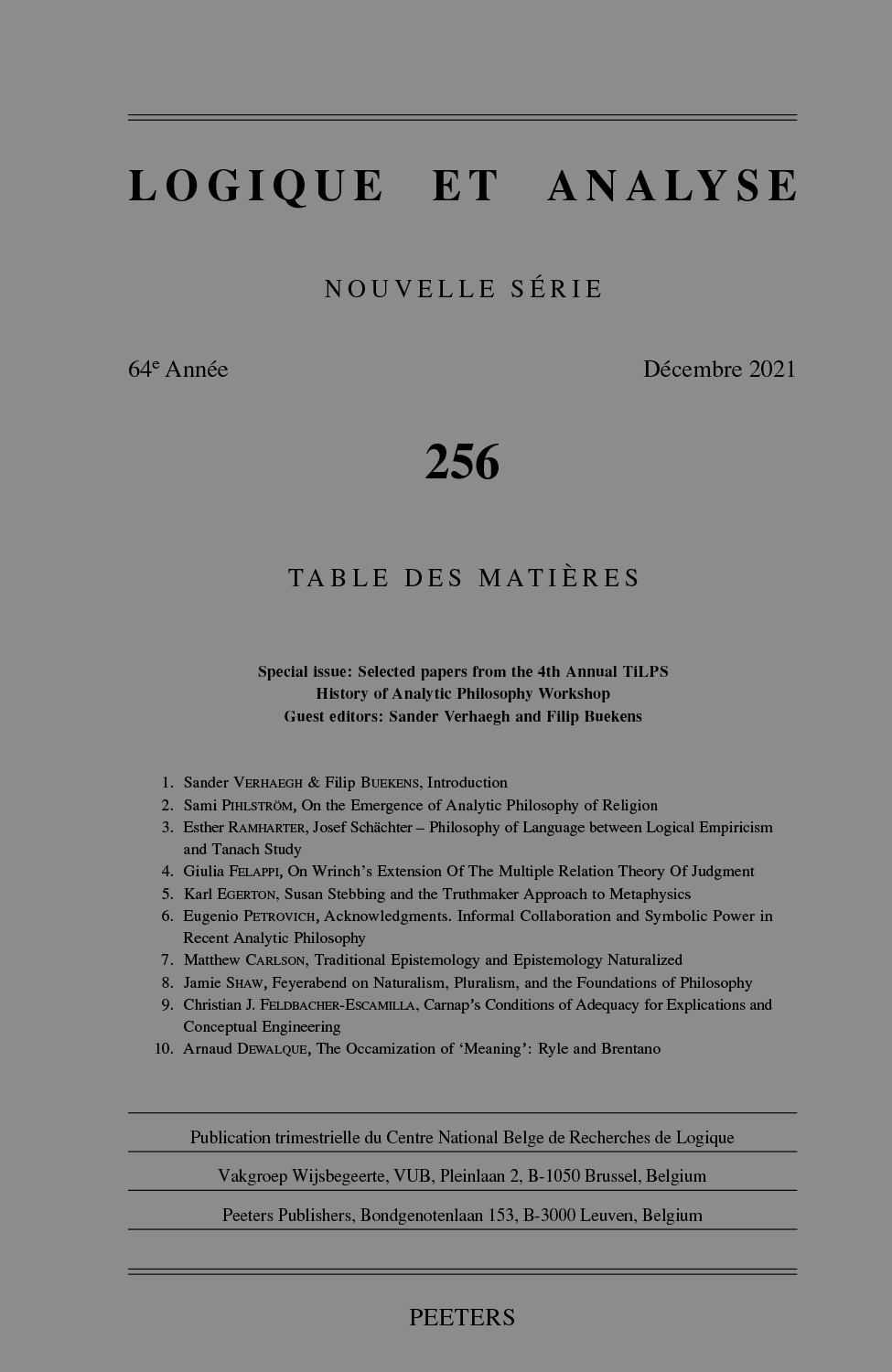 previous article in this issue previous article in this issue | next article in this issue  |

Preview first page |
Document Details : Title: Taking Stock Subtitle: Arguments for the Veridicality Thesis Author(s): DEMIR, Hilmi Journal: Logique et Analyse Volume: 226 Date: 2014 Pages: 117-135 DOI: 10.2143/LEA.226.0.3032651 Abstract : According to the Veridicality Thesis, information encapsulates truth. An important implication of this thesis is that misinformation and disinformation are not types of information at all. The first clear formulation of the thesis is provided by Dretske (1981). Floridi (2011), a more recent defender of the Veridicality Thesis, offers two novel arguments in defense of this thesis. His first argument, the argument from splitting, is based on two different usages of adjectives: attributive and predicative. Floridi claims that ‘false’ in ‘false information’ is used attributively, which implies that ‘false information’ is not a kind of information. In his second argument, the argument from semantic loss of information, he argues that without the Veridicality Thesis it becomes difficult to make sense of the ordinary phenomenon of semantic erosion. The literature is lacking in a comprehensive and detailed treatment of Floridi’s arguments. In particular, an analysis of his quite lengthy and technical second argument is lacking. This is what I intend to do in this paper. The conclusion of my analysis is, unfortunately, a negative one: neither of the two arguments offered by Floridi is strong enough to establish the desired conclusion. My analysis shows that the argument from splitting commits a basic fallacy, petitio principii. As for his second argument, I argue that it is possible to account for semantic erosion even without adopting the truthfulness requirement for information. In short, my analysis shows that the logical structures of Floridi’s arguments are not sufficiently strong enough for establishing the Thesis. |
 |


